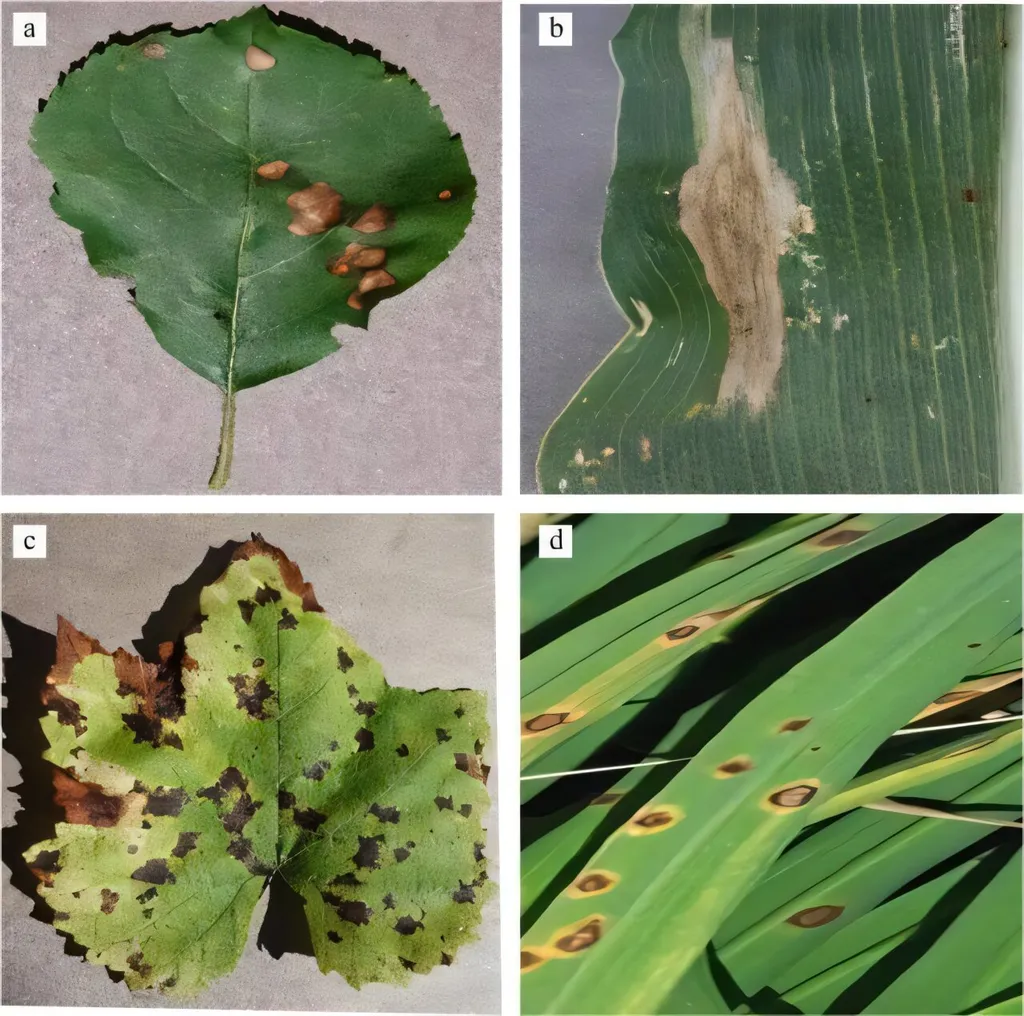In the relentless pursuit of sustainable agriculture and food security, a novel data augmentation strategy has emerged, promising to revolutionize plant disease identification and mobile diagnosis. This innovation, dubbed Enhanced-RICAP, is the brainchild of Mamadou Bailo Diallo, a researcher at the College of Information Sciences and Technology, Gansu Agricultural University, Lanzhou, China. His work, published in the esteemed journal ‘Frontiers in Plant Science’ (which translates to ‘Frontiers in Plant Science’ in English), is set to reshape the landscape of agricultural technology.
Plant diseases are a formidable adversary, threatening global food security and agricultural productivity. Accurate and timely disease identification is crucial for effective crop management and minimizing economic losses. Traditional data augmentation techniques, while useful, have a significant drawback: they rely on randomly extracted image regions, which can introduce label noise and potentially mislead deep learning models.
Diallo’s Enhanced-RICAP addresses this limitation head-on. “By replacing random patch selection with an attention module guided by class activation maps, we focus on the most discriminative regions of the image,” Diallo explains. This targeted approach reduces label noise and significantly improves model accuracy for plant disease detection.
The efficacy of Enhanced-RICAP was rigorously tested using several deep learning architectures, including ResNet18, ResNet34, ResNet50, EfficientNet-b, and Xception. The datasets used were the cassava leaf disease and PlantVillage tomato leaf disease collections. The results were impressive. Enhanced-RICAP consistently outperformed existing augmentation methods like CutMix, MixUp, CutOut, Hide-and-Seek, and RICAP across key evaluation metrics: accuracy, precision, recall, and F1-score.
The ResNet18+Enhanced-RICAP configuration achieved a staggering 99.86% accuracy on the tomato leaf disease dataset. Meanwhile, the Xception+Enhanced-RICAP model attained 96.64% accuracy in classifying four cassava leaf disease categories. These results underscore the potential of Enhanced-RICAP to transform plant disease identification and management.
But the innovation doesn’t stop at the research stage. To bridge the gap between research and practical application, Diallo and his team deployed the ResNet18+Enhanced-RICAP model in PlantDisease, a mobile application that enables real-time disease identification and management recommendations. This tool empowers farmers with accessible and reliable diagnostic capabilities, supporting sustainable agriculture and strengthening food security.
The commercial implications of this research are profound. In an era where climate change and population growth are putting immense pressure on agricultural systems, technologies that enhance crop productivity and resilience are invaluable. Enhanced-RICAP and the PlantDisease app are poised to become indispensable tools for farmers, agronomists, and agricultural businesses worldwide.
Looking ahead, this research opens up exciting avenues for future developments. As Diallo notes, “The attention module in Enhanced-RICAP can be further improved and adapted to other computer vision tasks, not just plant disease identification.” This suggests that the principles underlying Enhanced-RICAP could be applied to a wide range of agricultural and environmental challenges, from pest detection to soil health monitoring.
In conclusion, Enhanced-RICAP represents a significant leap forward in the fight against plant diseases. By improving the accuracy and reliability of deep learning models, it brings us one step closer to a future of sustainable agriculture and food security. As this technology continues to evolve, it has the potential to reshape the agricultural landscape, benefiting farmers, businesses, and consumers alike.

